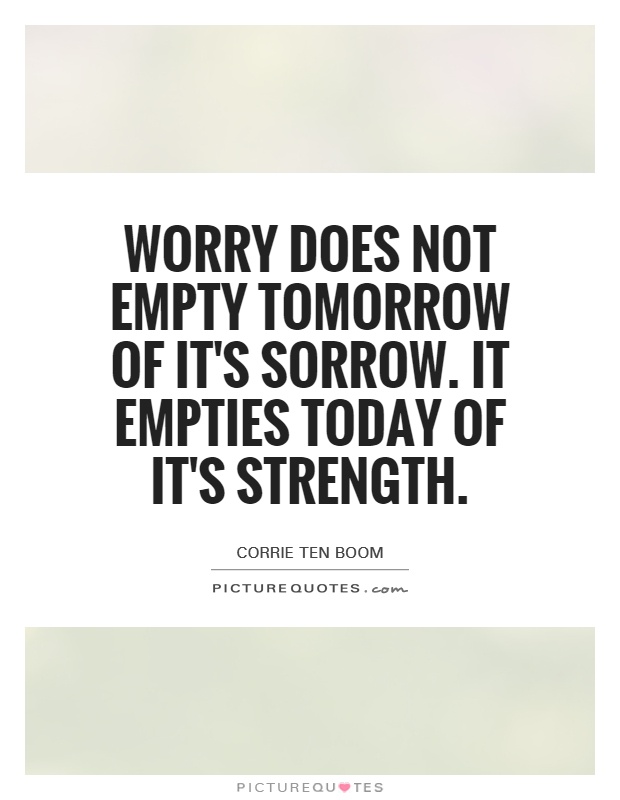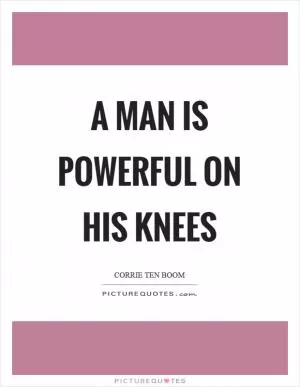Worry does not empty tomorrow of it's sorrow. It empties today of it's strength

Worry does not empty tomorrow of it's sorrow. It empties today of it's strength
Corrie ten Boom was a remarkable woman who lived through some of the darkest times in human history. As a Dutch Christian who helped hide Jews during the Holocaust, she experienced firsthand the horrors of war and the depths of human suffering. Despite facing unimaginable challenges and witnessing unspeakable atrocities, Corrie remained steadfast in her faith and unwavering in her belief in the power of love and forgiveness.One of the most powerful lessons that Corrie learned during her time in the concentration camps was the futility of worry. In her book "The Hiding Place," she writes, "Worry does not empty tomorrow of its sorrow. It empties today of its strength." These words are a poignant reminder of the destructive nature of worry and the toll it can take on our mental and emotional well-being.
During her time in the concentration camps, Corrie saw firsthand how worry and fear could consume a person, draining them of their strength and resilience. She witnessed the despair and hopelessness that gripped those who allowed themselves to be consumed by worry, and she saw how it robbed them of their ability to find joy and peace in the midst of unimaginable suffering.
Corrie understood that worry is a natural human response to uncertainty and fear, but she also knew that it was a choice. She believed that we have the power to choose how we respond to the challenges and difficulties that life throws our way, and that worrying only serves to weaken us and rob us of the strength we need to face those challenges head-on.












 Friendship Quotes
Friendship Quotes Love Quotes
Love Quotes Life Quotes
Life Quotes Funny Quotes
Funny Quotes Motivational Quotes
Motivational Quotes Inspirational Quotes
Inspirational Quotes